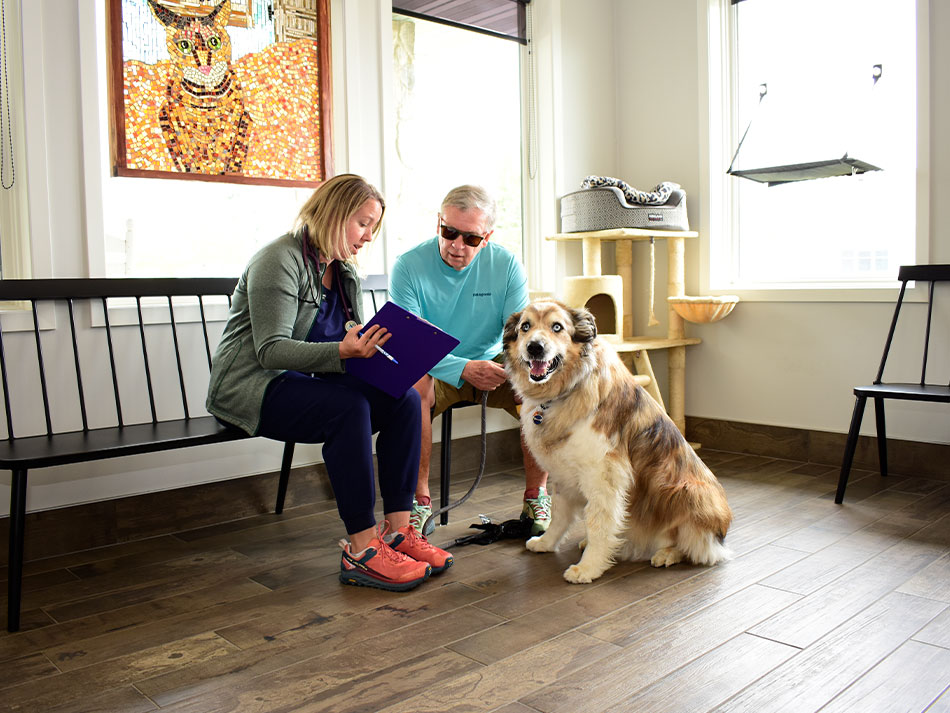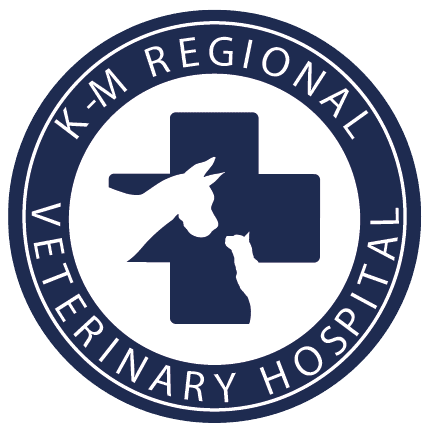Senior Pet Care
Older pets, like humans, require more frequent check-ups in order to detect early warning signs of illness as they grow older. Regular preventative care becomes even more important to prevent or delay the types of diseases that older pets are more prone to, including kidney, heart, and liver disease; cancers; organ failure; osteoarthritis; and hormone disorders, among others. Remember that animals age at a rate of five to seven times that of humans, so more frequent wellness visits are strongly recommended to make sure that all of your pet’s healthcare needs are still being met.

Our senior wellness exams are tailored specifically for the needs of older pets, which include a complete blood count, urinalysis, blood-chemistry panel, and parasite evaluation. Our veterinarians can also suggest special formulated food for your senior pet, whose new nutritional needs will benefit from an adjusted diet.
Keeping your senior pet active
One of the best things that you can do for your dog is to keep him or her active. Play and exercise will help to slow the deterioration of senses associated with the aging process and help keep his or her muscles strong.
Please also be watchful for any of the following warning signs. They indicate a problem which should be diagnosed by one of our veterinarians as soon as possible:
- Sudden weight loss or gain
- Significant decrease or increase in appetite or failure to eat for more than two days
- Noticeable decrease in vision
- Increasing inactivity or amount of time spent sleeping
- Excessive panting
- Hair loss, especially if accompanied by scratching in local area (as opposed to general)
- Seizures or convulsing

